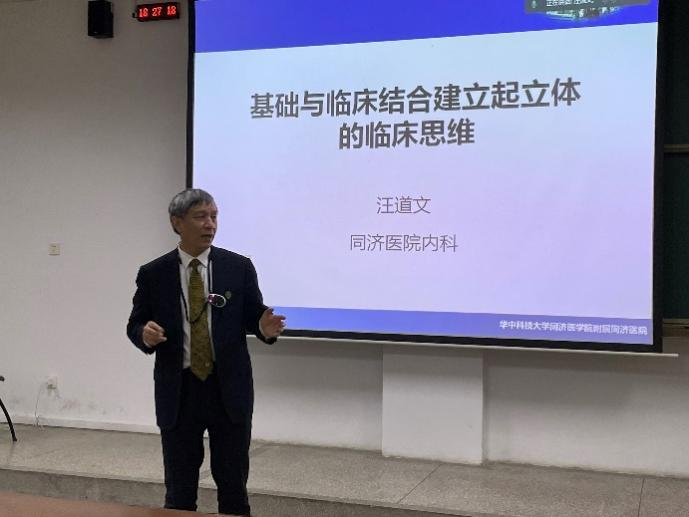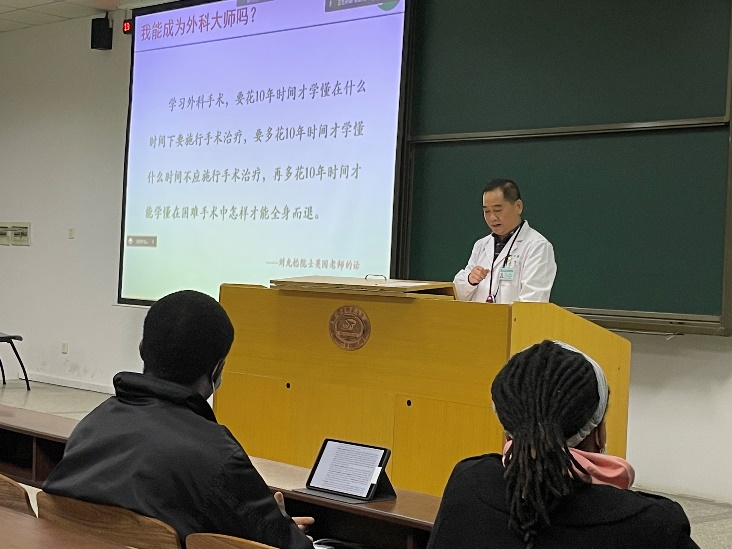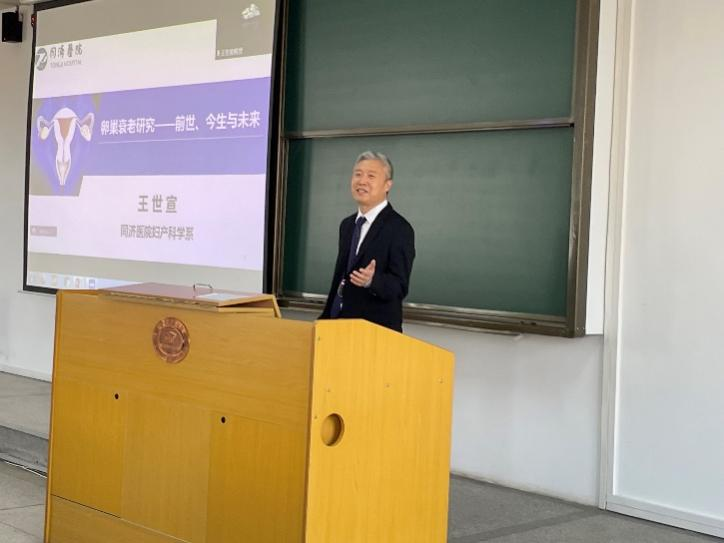On March 3, five new courses such as “Frontiers in Medical Sciences”, “Clinical Thinking” and “Clinical Skills” of the Postgraduate Department of Tongji Hospital completed their first sessions one after another. Students from eight hospitals affiliated with Huazhong University of Science and Technology (HUST), such as Tongji Hospital, Wuhan Hospital of Traditional Chinese and Western Medicine, the Central Hospital of Wuhan, and Wuhan Children’s Hospital, registered for those courses and attended them either online or offline simultaneously. The classroom atmosphere was active and the interaction between lecturers and students was good.
As an important cornerstone of national development and social progress, postgraduate education has attracted great attention from the management and postgraduate administration of Tongji Hospital, in which Zhu Wenzhen, Vice President of Tongji Hospital in charge of postgraduate work, emphasized that Tongji Hospital should create postgraduate quality demonstration courses through the optimization of the postgraduate curriculum system, the construction of core courses, and the innovation of teaching methods to promote the connotative and high-quality development of postgraduate education in the hospital. To this end, five new core courses have been added to the revised graduate training program, including “Frontiers in Medical Sciences”, “Clinical Thinking” and “Clinical Skills”.
Among these core courses, “Clinical Thinking” is lectured by Prof. Wang Daowen in the Teaching and Research Section of Internal Medicine, “Clinical Skills” is lectured by Prof. Zhang Bixiang in the Teaching and Research Section of Surgery, and “Frontiers in Medical Sciences” is lectured by Prof. Wang Shixuan in the Teaching and Research Section of Obstetrics and Gynecology. According to the core curriculum guidelines issued by the National Steering Committee of Postgraduate Medical Degree Education, Vice President Zhu Wenzhen invited Prof. Xia Tian from the School of Electronic Information and Communications, HUST to join the “Frontiers in Medical Sciences” course team to teach medical students about the research and prospects of AI applications in the field of medicine. In addition, the “Clinical Thinking” course team has also invited national directors from other institutions in related fields to give lectures.
At the course preparation meeting, Hou Changrong, Secretary of the Postgraduate Party Committee, said that Tongji Hospital should strengthen the construction of the curriculum based on the capability cultivation and long-term development of postgraduates, enhance the role of course learning in postgraduate training, while promoting the ideological and political guidance of postgraduate courses in order to improve the quality of postgraduate training. The professors expressed that the courses will highlight Tongji characteristics and tell Tongji stories. At the same time, they distilled and summarized their years of clinical and scientific research experience in the lectures, hoping to inspire the clinical and scientific research of postgraduates.
The Postgraduate Department conducted a post-class questionnaire survey of the students participating in the class and received an enthusiastic response from them. The students were impressed by the lecturers, as the course combined their experiences and actual clinical work, and taught the specific thinking process of clinical diagnosis and treatment through specific classical cases, which were detailed and layered, logical and clear, making people expect the subsequent content.
Relying on its disciplinary characteristics and advantages, Tongji Hospital will aim to build a curriculum construction system focusing on improving the quality of education, and continue to provide rich and high-quality curriculum resources for postgraduates. It is committed to developing the Tongji brand of core courses for postgraduates and promoting the high-quality development of postgraduate education in the new era to provide more solid talent support for China’s comprehensive construction of a modern socialist country.





